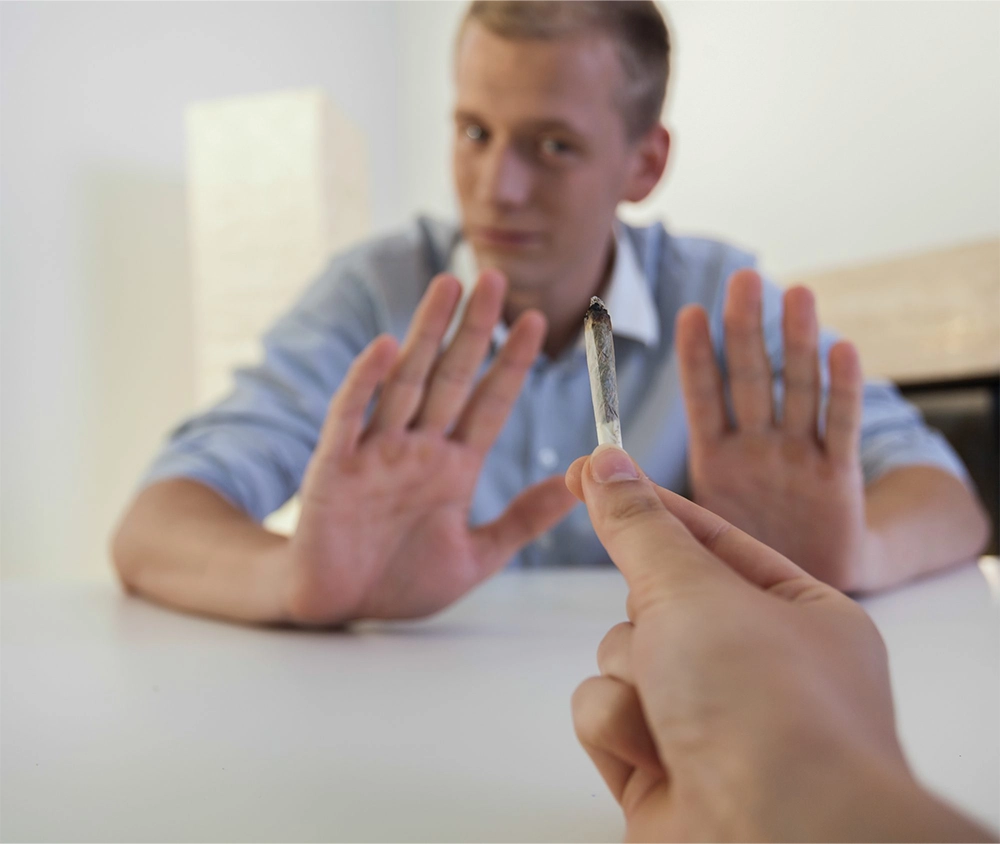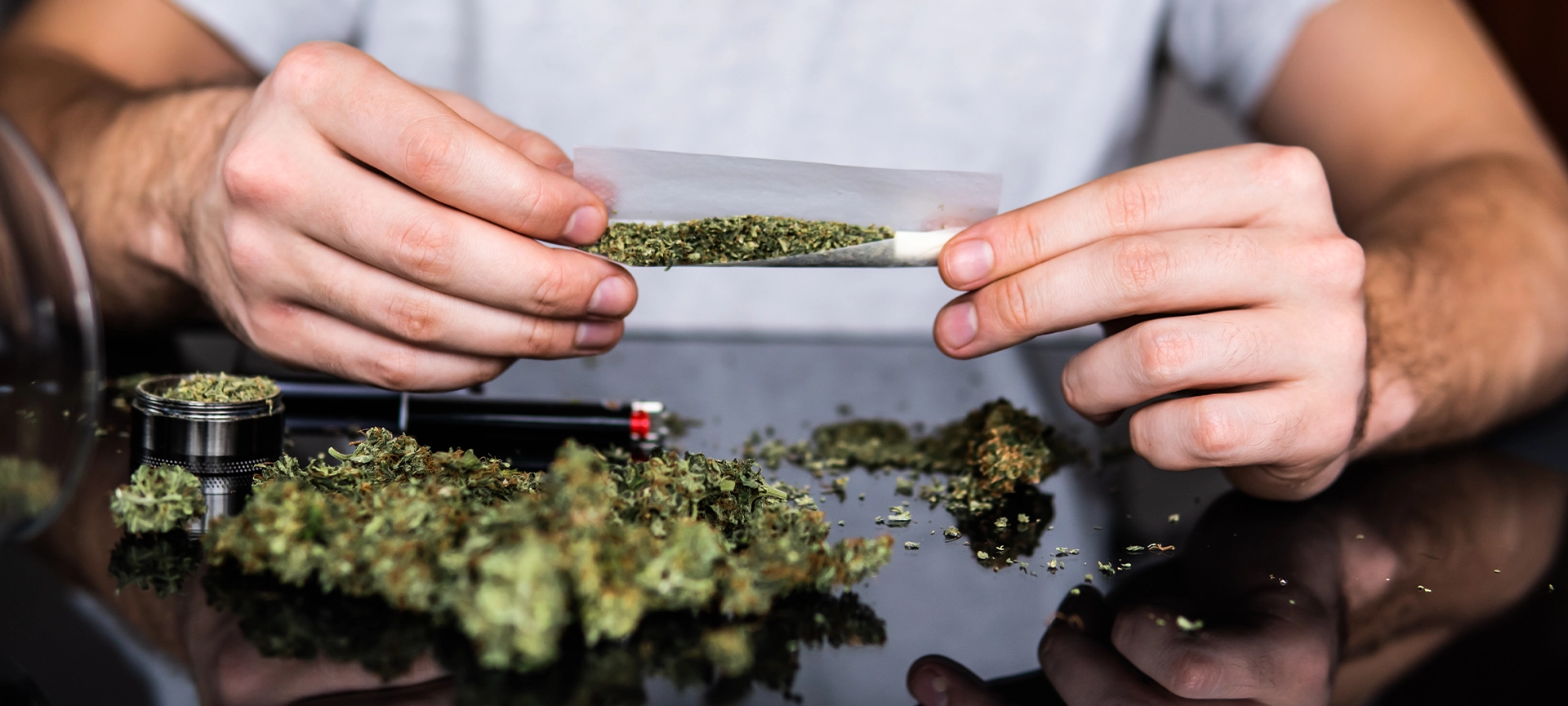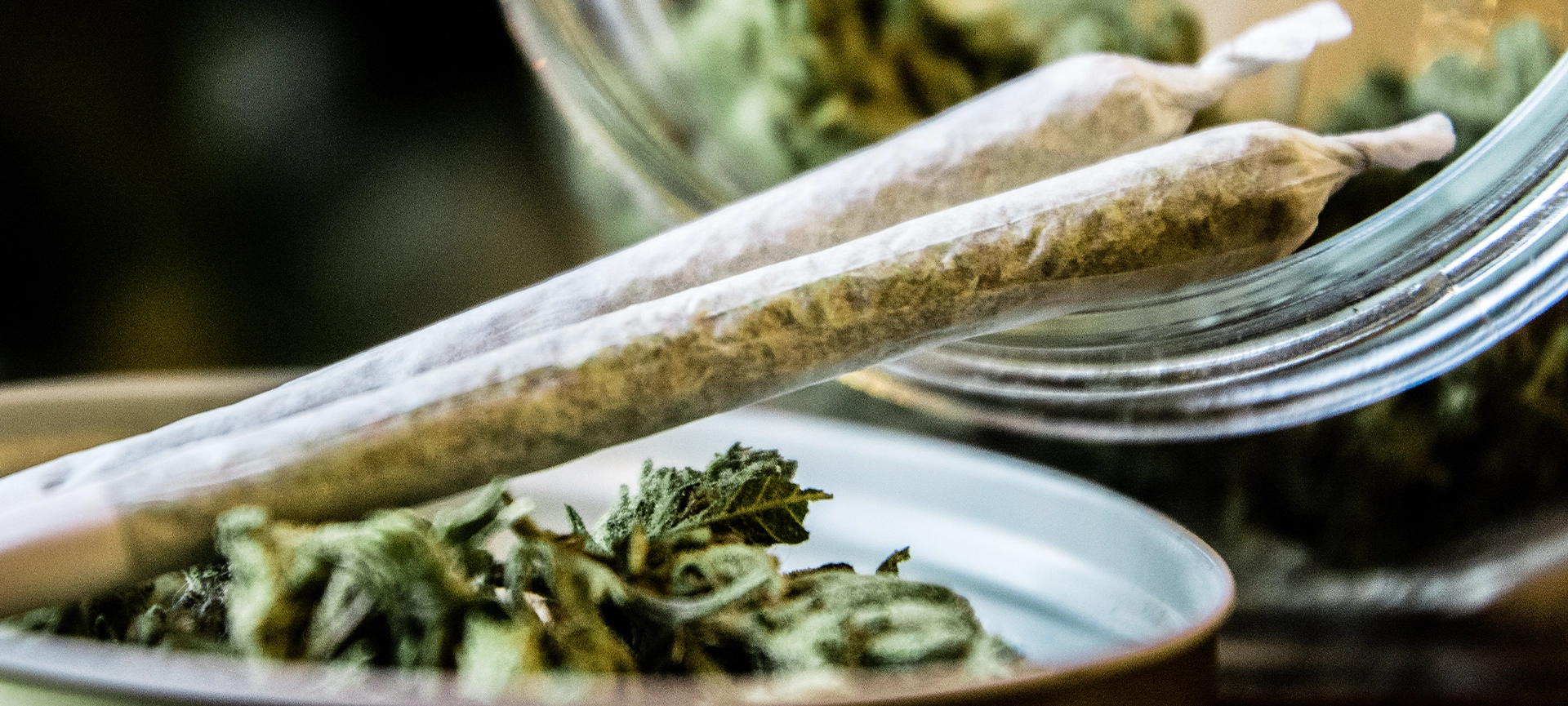Overcoming marijuana addiction is a difficult task but not and is never an impossible one. Before we dive into solutions, let us define first what Marijuana is and identify its causes.
What is Marijuana?
Marijuana is a term referring to the dried stems, leaves, flowers, and seeds of the scientifically named plant Cannabis indica/Sativa, also known as Cannabis. Another alternative name for it is “weed” and it is branded as the most frequently used drug of youngsters. Tetrahydrocannabinol (THC), a crystalline compound known to produce mind-altering effects to its consumer, is the main active ingredient of cannabis.
The THC in Marijuana has been rising for the past decades. Many users are sent to the emergency room because of this phenomenon. High exposure to THC is a detriment to one’s health and is blamed as the reason why more Marijuana users are sent to the hospital.
How is Marijuana being used?
Smoking is the conventional method of using Marijuana. Users smoke the weed in hand-rolled cigarettes or in water pipes called bongs. Another way of doing it is through refilling empty cigars with Marijuana.
People who don’t like to inhale the smoke are not necessarily exempted from using it because there are other methods of consuming Marijuana. There are people who prefer using vaporizers, where they only inhale the vapour. It could also serve as an ingredient to food such as brownies and candy. Marijuana can also take the form of a beverage by brewing it like tea.
Dabbing is another method of consuming marijuana which is done through eating or smoking THC-rich resins which are then formed as extracts such as shatter, honey oil, and more. However, Marijuana edibles are hard to digest; therefore, the body takes time to recognize the THC. Consequentially, the person is at a high risk of consuming more of it and overdosing the drug.
In addition, preparing marijuana extracts require butane or lighter fluid which can cause explosions if used without ample safety precautions. There have been many records of fire break-out because of this.
Why is Marijuana Addiction Prevalent?
People are likely to abuse marijuana because it is an addictive drug. In addition, the prevalence of Marijuana edibles allows the user to consume more THC because of its slow digestive properties. Young people consume more of it without knowing how much THC they are already consuming. Wanting to get “high,” they overdose on it and experience intense reactions as a consequence. Also, frequent use of it creates the potential to abuse it. The higher the dose of THC, the more likely it is for the person to get addicted to it.
In addition, Marijuana addiction is prevalent because it remains because of its addictive trait. Even if the Marijuana-dependent person is already aware of the harmful effects of the drug and that he/she must refrain from using it, withdrawal remains hard for them. People who have been using it for a long time cannot simply remove the substance which is already a part of their bodily system.
Related article: How to Stop Smoking Marijuana
The Hazards of Marijuana Abuse
There has been plenty of researches about the benefits of using Marijuana. However, all of these positive effects are dwarfed by the havoc that the drug wreaks to your life once you become addicted to it. Here are some of the ill effects of Marijuana abuse.
Physical Consequences of Marijuana Abuse
Proponents of marijuana suggest smoking weed instead of cigarettes because it is less harmful to the body. However, regular use of marijuana serves as an antithesis to this statement. The body is greatly affected by the continuous use of Marijuana. Here are some of the adverse physical effects of weed.
Difficulty in Breathing
Marijuana and cigarettes are different but they are consumed in a similar manner – by smoking. No matter what chemical is used, smoking is already enough to irritate the lungs. People who smoke marijuana can experience difficulty in breathing and may develop problems infections and illnesses with their lungs. Researches about the relation of marijuana smoke and lung cancer are still progressing.
Nausea and Vomiting
Cannabinoid Hyperemesis Syndrome is a condition in which a person suffers from intense cycles of vomiting and nausea. This syndrome could be developed with long-term and consistent marijuana use. In addition, the Marijuana user may experience dehydration.
Heart problems
People who want to try smoking marijuana despite having heart ailments should consider re-evaluating their decision. Increased heart rate is a common effect of consuming cannabis. At most, this situation could last for about three hours. This endangers those people from a heart attack.
Abnormalities in Pregnancy and Child Development
Medical experts heavily discourage pregnant women to use marijuana because of the ill effects that they may cause to the fetus. Mothers who used marijuana at this crucial period tend to have a low birth weight. Based on observations, these babies tend to have learning and problem-solving difficulties. They are also likely to have behavioural problems.
Mental Consequences of Marijuana Abuse
One of the reasons for Marijuana recreational use is euphoria. Since Marijuana is also classified as an antidepressant, users boast on the fact that smoking weed can bring immense pleasure to the user. As a result, it helps their mood and mental condition. However, Marijuana abuse is a different matter.
When a person uses marijuana in great doses for a long period, developing a mental illness is possible. If you are in a bad mental state already, abusing on Marijuana could help in deteriorating your mind further. Here are some of the mental consequences of Marijuana abuse:
Sleep Problems
Insomnia is a common withdrawal symptom for Marijuana Abuse. Sleeping becomes difficult if you haven’t smoked marijuana. This is double trouble since sleep deprivation is a known contributor to most mental health problems.
Paranoia
Losing touch of reality and mistrust of people is one of the adverse effects of Marijuana abuse. Other forms of paranoia include delusions and persecution complex in which the paranoid person thinks that people are out to get him. Psychosis could also be developed due to Marijuana abuse.
Hallucinations
Auditory and visual hallucinations are temporary effects of Marijuana. Although there are people resorting to marijuana to treat schizophrenia in the replacement of antipsychotic drugs, it is possible that one’s mental condition could get worse with regular marijuana use.
Anxiety, Depression, and Suicidal Thoughts
Young people who use marijuana consistently can experience increased anxiety, suicidal thoughts, and depression. Although it sounds ironic, this is a shared side effect of antidepressant drugs.
Since some people are using marijuana as a coping mechanism, it could be inferred that cannabis is just a temporary solution. It is an escape to the ugly issues that the person could not face, thus leaving him/her with a suicidal feeling upon realization of mania.
Impaired Memory, Concentration, and Coordination
People who are abusing Marijuana could suffer from memory loss as a result. It makes their retention capacity limited and forgetfulness could arise. Marijuana is also a stimulant. Abusing it would mess up one’s motor skills and responsiveness. A person who is high in Marijuana may find it difficult to drive or to concentrate on a task.
Personal Consequences of Marijuana Abuse
Studies show that people who don’t use marijuana tend to suffer less than those who are addicted to it. Since the dependent’s time is no longer allocated, a lot of aspects in his personal life tend to be neglected.
Relationship problems arise because of the lack of bonding and time together with loved ones. Students who use marijuana might experience academic challenges due to failure to comply with the demands of the school. Dependents who are employees might lose their job due to tardiness or accidents due to coordination impairment.
How do you know if your loved one is abusing Marijuana?
You might be here to help yourself or a loved one in overcoming Marijuana addiction. The first step toward recovery is awareness and acceptance. Recognizing that there is a problem is a way to find the answer to it. Many people who have a substance abuse disorder tend to be in denial of their predicament. To assess yourself or the person that you came here for, here are the signs of marijuana addiction.
Increasing Use of Marijuana
Regular use of Marijuana causes you to have a tolerance buildup. This means that you tend to need a higher dose just to experience the drug kicking in. You don’t get satisfied with the previous dose that you have. In order to experience the same kind of high as before, you need to smoke greater quantities of weed.
Withdrawal Symptoms
When you don’t smoke weed, you tend to feel anxious and irritable. Since marijuana causes hunger, not smoking can result in loss of appetite. You may also experience insomnia. Smoking weed is now classified as a need by your system that you must tend to or else, you would experience these withdrawal symptoms.
Lack of Control
No matter how much you want to quit, you can’t stop using marijuana. You may not be able to control how much you use. There may be instances when you ended up smoking the entire joint instead of the intended minimal dose. If this happens to you a lot, you would really need help to get rid of your addiction because it would seem impossible to do it on your own.
Using Marijuana as a coping mechanism
One of the sure signs of marijuana addiction is when it is the only way you could stabilize yourself. Whenever you are faced with a problem, you would cope with getting high. You may need marijuana before doing a task because it’s the only method to feel relaxed. Getting dependent on the drug shows that you
Getting high is a priority
If you are not consuming weed, then, you are thinking about it. You lose interest in the activities that you used to enjoy and tend to look forward to events where you could smoke another joint. You would prefer companions who are also using marijuana instead of spending time with the dear people in your life. In addition, you might also want to look for another drug. You spend too much time in drug use and in longing for it.
Neglect of responsibilities is also associated with Marijuana addiction. Since you just want to get high all the time, you cannot divide a portion of your schedule to doing what needs to be done. You may not be able to do your duties at work or your assignments in school because you spend all of your time on your addiction. Even simple activities such as cleaning your house and washing the dishes remain undone. You tend to be disorganized because you’re no longer considering other things than getting high.
You may also lose some of your friends and loved ones who aren’t smoking weed because you don’t get to spend some time with them. You prefer the good and brief time that you have with smokers as a company over real relationships.
Related article: How to Tell if Your Loved One Has a Drug Addiction
How to treat Marijuana Addiction?
If you or your loved one is/are experiencing most of the symptoms tackled above, do not succumb to the feeling of helplessness. Be assured that just like any form of addiction, Marijuana dependence is treatable. You have just accomplished the first part of healing – awareness. Here are the next steps that you can take in order to get the destructive drug out of one’s system.
Expect difficulty
You have acknowledged the problem and established your willingness to overcome it. The next part of recovery is the hardest. Expect that you would have a hard time trying to gain control of your life. Withdrawal symptoms are hard to ignore. However, nothing is arduous than the vicious cycle of addiction. Do not fall for your usual tactic of avoiding problems and indulging in weed as a coping mechanism to this stress.
The recovery period for marijuana addiction varies. It may take months or even years. Stop measuring progress and get the treatment plan that you need as soon as possible.
Get support
Having a good company is essential to recovery. Reaching out to your family or any trusted friend is a good way of getting support. This would help a lot whenever you feel overwhelmed. Apart from them, you could also join a support group. It might be challenging to be understood by people who are not experiencing your problem.
Being with like-minded people who are also struggling with marijuana addiction could be a better alternative to this. Attend meetings and socialize with new people. Aside from the constant reinforcement to make yourself better brought to you by your companions, you could also start building your social life through this method. You would be able to divert your attention and fill your time with useful activities and bonding with friends instead of resorting to your old habit of destroying yourself.
In joining a support group, remember the first step in recovery: expect difficulty. Using drugs has isolated you from many of your close friends. As a result, you might feel anxious, depressed, and paranoid. Be prepared for those times. This is your chance to interact again with people and to retrieve your normal life. Allow yourself to see the expense of your addiction.
In meetings, you could draw inspiration from the words of your mate’s battle with addiction. You would meet people who have fully recovered from it as well as people who are just like you, starting from scratch. Apart from the learnings that you will get, the bond that you will create here will help you regain yourself.
On the other hand, if you are here for the sake of a drug-dependent loved one, you’re on the right track. Support from you is definitely what he/she needs at this crucial time. It might be hard for him/her to open up to you. However, always check in with this dear person and be a constant reminder that help is accessible.
Related article: Do Marijuana Addiction Treatments Work?
Seek professional help
Although family and support groups are a great company to have at the course of your recovery, professional support is another need that you must tend. Therapy is a gigantic step towards healing especially in getting through the early weeks of withdrawal from marijuana. Having a doctor specializing in addiction recovery is recommended. However, if your budget cannot afford it, you may seek help from peer counsellors, social workers, or any psychotherapist. Aside from the camaraderie, you need experts who have studied a lot about your issue.
If you can afford it, it is a must-have to undergo CBT or Cognitive Behavioral Therapy. In addition, you may also ask your psychiatrist for medication such as antidepressants. These are some methods that therapy could offer.
Practice Meditation
Silence and sitting with your eyes closed may not seem an enjoyable pair. Your mind may wander as you attempt meditation for the first time. However, remember the first step towards recovery. Everything is bound to be difficult. Meditation won’t be around for 5,000 years if it isn’t effective.
Even if it’s difficult, try to focus on your breathing for three to five minutes. Start in small chunks of time and gradually increase it. Meditation is an excellent method in rewiring the brain. Soon, you would be able to handle your thoughts. You would begin to love meditating when you finally find peace with your inner thoughts. You would be able to establish your will power and be resilient to the desire to use marijuana.
On the other hand, if you are a person who wants to help your loved one, introducing meditation to him/her is one way of helping.
Forgive yourself
Shame, guilt, regret – these are the three things which are probably driving you to get out of your addiction. Marijuana must have stolen a lot of good relationships and opportunities from you. You have already acknowledged that you were wrong. The second part of the statement is that you could still set things right. So, forgive yourself already.
This might sound like a piece of generic advice. However, we won’t be throwing around easier words such as “get over it”. We can’t remove your grief from what you have lost. Blaming yourself is a natural response because you really valued what is no longer existing at present. It’s okay to grieve.
Right now, there are only two things that you can do. The first one is to let the problem engulf you. Since you have lost an important thing/being, you can give up on the other essentials of life. On the other side, the latter choice is to save what can be saved.
Treat yourself first before fixing the ruined relationships that you still cherish. Forgive yourself for the things that you haven’t done when you were eaten by your addiction. Even if it’s hard, stop harming yourself further with your coping mechanism disguised as a vice. Even if you can no longer bring back what was gone, you can still set some things right. One of those is your self-concept.
If you are the friend/loved one of a Marijuana dependent, telling him that you are there for him/her would mean a lot. Right now, he/she really needs someone to help him/her out. Do not abandon this person and guide that person through his/her journey to sobriety.
Related article: How to Overcome Marijuana Addiction?







